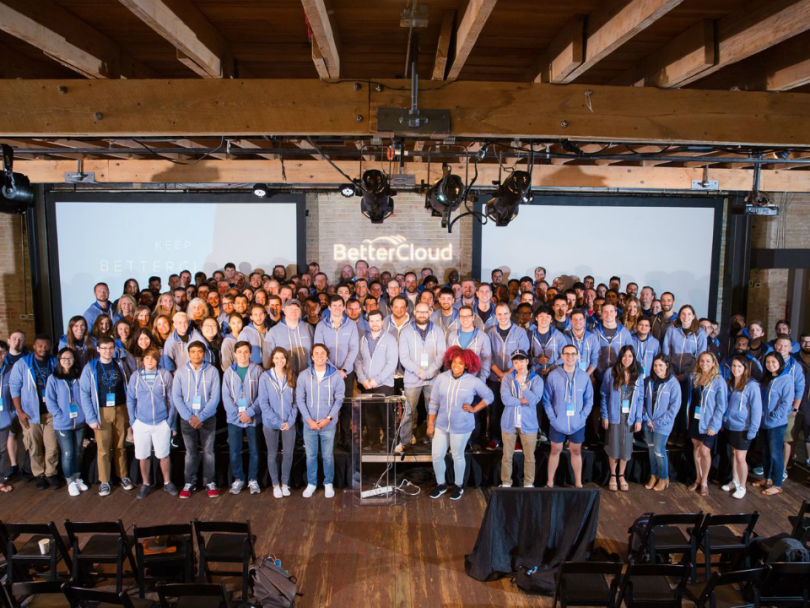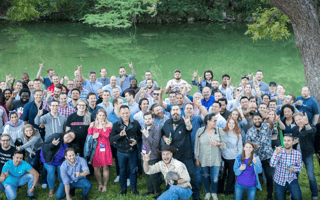
When BetterCloud was founded in 2011 by CEO David Politis, most people associated “the cloud” with terms like “cumulonimbus” instead of “data.” Politis saw an opportunity to engineer a missing link in cloud technology, and created a company that has raised more than $106 million in funding in its seven years.
“BetterCloud was born out of a need to secure critical business data in the cloud, most notably across SaaS applications,” Politis explained in an interview with Built In NYC. “Businesses left and right were starting to introduce new applications to increase productivity and make work-life better. Simultaneously, employees were starting to bring their own smartphones to work. The rise of these two trends drove a massive shift in information security and created unforseen security challenges for IT.”
BetterCloud was born out of a need to secure critical business data in the cloud."
While other cloud-oriented startups attempted to incorporate security measures into their platforms, BetterCloud rose to the top due to its, as Politis put it, “laser focus” and continued evolution, by understanding challenges like SaaS sprawl and using cutting-edge engineering to find solutions. Now, BetterCloud’s product helps IT teams in more than 60 countries enforce management and security for SaaS applications.
“We first started with a focus on G Suite as that was where we saw the fastest SaaS adoption,” Politis said, describing BetterCloud’s growth. “Over time, as new SaaS applications emerged and were introduced into the enterprise, it became clear that we had to double down on our product and expand support across more applications.”
What followed was a complete redesign of the platform. BetterCloud’s willingness to reinvest in its own product proved a major success and created an essentially modular version of the product.
“Today, we support every major SaaS application including G Suite, Slack, Dropbox, Box, Salesforce, Zendesk and more,” Politis said, referring to BetterCloud’s seamless integration with a host of cloud-based business tools.

In the tech world, BetterCloud isn’t simply known for its top of the line technology. The company has also crafted a reputation for exceptional company culture. In addition to comprehensive health benefits, professional development opportunities, and plenty of snacks, the BetterCloud ethos encourages real growth.
“We believe that anyone can do anything they put their mind to,” Politis said, referring to his dedicated teams of engineers, salespeople and others . “We encourage and give people ownership within their roles.” At monthly meetings, employees are able to anonymously share questions and thoughts, which proves to be a great bonding strategy for the team of several hundred. At company gatherings, individual departments and projects are also given special recognition.
“People ultimately want to have an impact and when you give them that freedom, you get great results,” said Politis.
People ultimately want to have an impact and when you give them that freedom, you get great results."
What could possibly be next for a company so on top of its game? Expect big announcements in the months to come, several of them made possible by the company’s $60 million fundraising earlier this month, Politis said.
“We plan to continue building out our platform and integrating with more and more applications. We will be announcing both a major new integration and significant new platform feature over the next couple of months,” Politis said. “We’re also hiring across the board in both our New York and Atlanta offices.”
As BetterCloud continues to change the game with new technologies, and set the standard for employee culture in the tech sphere, one can’t help but imagine what might be beyond the cloud.”




